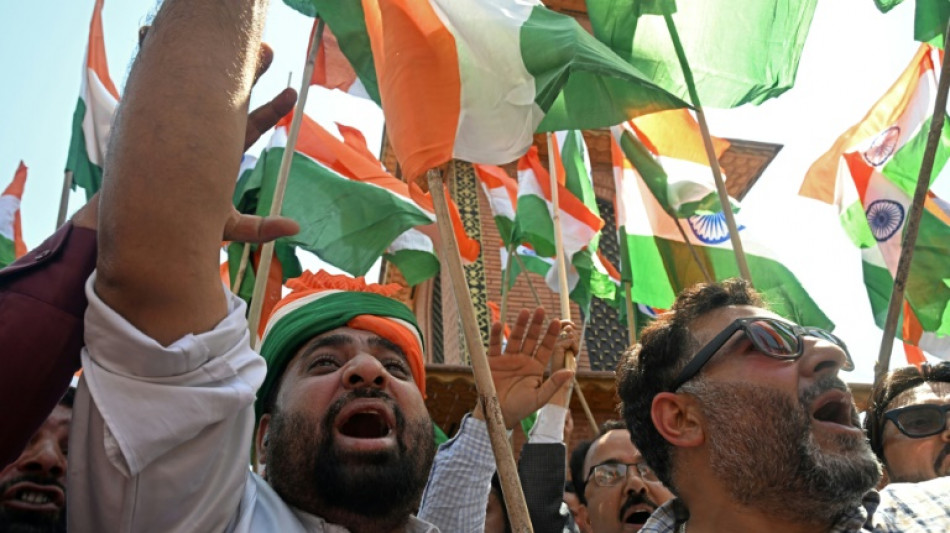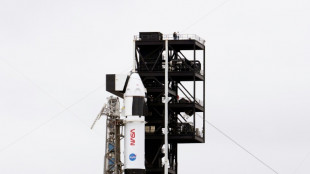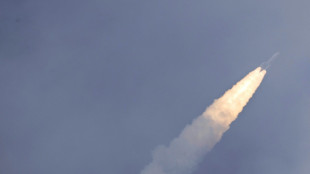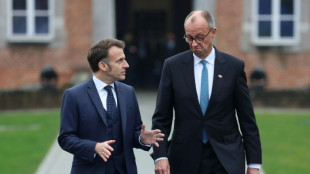
India says Pakistan nuclear arsenal should be under UN surveillance

Pakistan's nuclear arsenal should be under the surveillance of the UN's nuclear watchdog, Indian Defence Minister Rajnath Singh said Thursday, following a four-day conflict between Islamabad and New Delhi last week.
Pakistan did not immediately respond to Singh's comments, which came as the nuclear-armed rivals ended their worst military conflict in nearly three decades with a ceasefire announcement on Saturday.
"I wanted to raise this question for the world: are nuclear weapons safe in the hands of a rogue and irresponsible nation?" Singh told troops at a base in Srinagar in Indian-administered Kashmir.
"I believe that Pakistan's atomic weapons should be brought under the surveillance of the IAEA (International Atomic Energy Agency)," Singh added.
The latest conflict between India and Pakistan had sparked global concerns that it could spiral into a full-blown war.
Fighting began when India launched strikes on May 7 against what it said were "terrorist camps" in Pakistan following an April attack in Indian-administered Kashmir in which 26 people were killed.
New Delhi blamed Islamabad for backing the militants it claimed were behind the attack -- the deadliest on civilians in Kashmir in decades. Pakistan denies the charge.
Four days of intense tit-for-tat drone, missile and artillery exchanges ensued, leaving nearly 70 people, including dozens of civilians, dead on both sides.
- Not on the table -
Both India and Pakistan are nuclear powers and members of the IAEA, which regulates the use of nuclear weapons.
India has developed nuclear weapons since the 1990s in the form of intermediate-range ground-to-ground missiles. Long-range missiles are currently being tested, according to experts.
Pakistan has developed short- and intermediate-range ground-to-ground and air-to-ground nuclear missiles that can carry warheads.
Pakistani ministers have repeatedly said the nuclear option was not on the table. They also stressed on Saturday that its nuclear governmental body was not summoned at any point in the recent conflict.
Pakistani military spokesman Ahmed Sharif Chaudhry told reporters on Sunday that escalating conflict between "rival nuclear powers" was "inconceivable and sheer stupidity".
"That conflict can lead to the peril of 1.6 billion people, so in reality there is no space for war between India and Pakistan," Chaudhry said.
In a speech this week, Indian Prime Minister Narendra Modi said: "India will not tolerate any nuclear blackmail."
India had earlier denied targeting Pakistan's nuclear installations during the brief conflict.
"We have not hit Kirana Hills," Indian Air Marshal A.K. Bharti told reporters, referring to a vast rocky mountain range where, according to Indian media reports, Pakistan stores its nuclear arsenal.
Fearing further escalation, global leaders had urged restraint from the arch-enemies with US President Donald Trump announcing the surprise truce.
The ceasefire has held since the weekend, following initial claims of violations from both sides.
- Militant encounter -
However, Pakistan's Prime Minister Shehbaz Sharif, in a telephone call with UN chief Antonio Guterres on Wednesday, expressed "concerns over the continued provocative and inflammatory remarks by Indian leadership, as a threat to the fragile regional peace", his office said in a statement.
Militants have stepped up operations on the Indian side of Kashmir since 2019, when Modi's Hindu nationalist government revoked the region's limited autonomy and imposed direct rule from New Delhi.
Police in Indian-administered Kashmir meanwhile said they killed three suspected militants on Thursday in the town of Tral, in Pulwama district south of Srinagar, the region's main city.
"All the three militants involved in the encounter in Tral were killed," a senior police officer told AFP on condition of anonymity.
The officer said that they were not linked to the deadly April attack against tourists near Pahalgam.
Police also said three other suspected militants died in a gun battle with soldiers on Tuesday in the southern Kashmir valley.
Muslim-majority Kashmir is claimed in full by both India and Pakistan, which have fought several wars over the territory since their 1947 independence from British rule.
burs-aks/ach/sco
I.Wright--SFF

 London
London

 Manchester
Manchester
 Glasgow
Glasgow
 Dublin
Dublin
 Belfast
Belfast
 Washington
Washington
 Denver
Denver
 Atlanta
Atlanta
 Dallas
Dallas
 Houston Texas
Houston Texas
 New Orleans
New Orleans
 El Paso
El Paso
 Phoenix
Phoenix
 Los Angeles
Los Angeles



